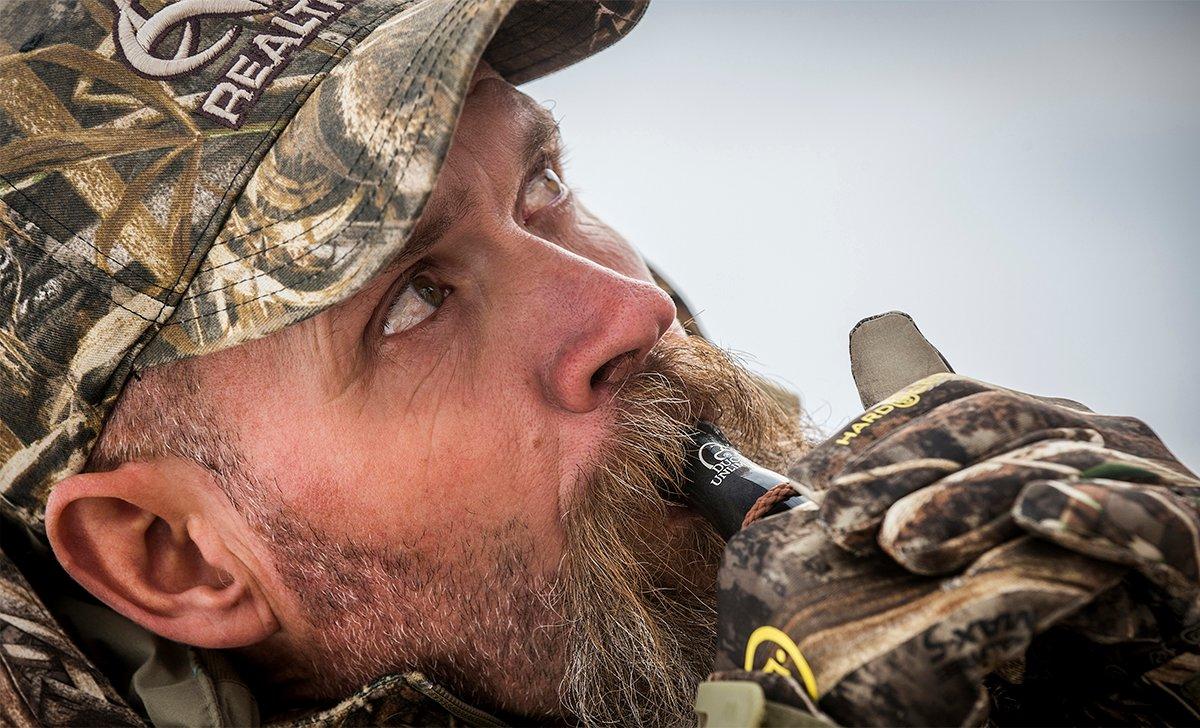The Waterfowl Pros Dispel Some Popular Misconceptions
Like any discipline, duck calling has its share of truths, misconceptions and outright falsehoods.
In fact, a quick glance at any online forum or social media group will reveal many varying and conflicting opinions about the proper way to call ducks. But who's right, and which self-proclaimed expert is full of it?
We went straight to the pros to find out. Here's their list of top duck calling myths.
John Gordon
I think the biggest myth is that birds become 'call-shy,' said Gordon, a former guide who handles public relations for Banded and Avery. You can't automatically assume because it's late and there's a lot of pressure on ducks and geese that they won't respond to aggressive calling.
Gordon said you should approach each day with a clean slate and try to determine what birds want to hear.
Calling is a hunt-by-hunt thing, he said. You need to experiment until you find what's working on a particular day. That's it, plain and simple. Each day is a new one, so act accordingly.
Tony Vandemore
Vandemore, who guides hunters at his Habitat Flats operations in Saskatchewan and Sumner, Missouri, called out an old duck calling axiom.
Not sure if it's a myth, but I hear a lot of folks say you need to be quiet and soft on the call, he said. My favorite hunting is running traffic in timber holes, meaning just hunting holes that have a lot of ducks over them but none using them. In this case, when ducks are streaming out, you have to flat rip on them to get them started — very loud and aggressive. Once you get one locking up and starting to sail, then it's on, and you can tone it back a little. It doesn't have to be non-stop loud, but when running traffic, they usually like it all the way in.
And Vandemore, like Gordon, said you must be observant and pay attention to how birds react to various vocalizations and styles of calling.
Any type of good calling, whether soft or loud, is still a matter of reading the bird and knowing what to say and when to say it, he said.
Chad Belding
Belding, host of Banded's The Fowl Life, shakes his head at what's become common advice.
The No. 1 myth, in my opinion, is that you should grunt into your duck call, he said. This is not the case. Your air pressure needs to be heavy and clean. It's almost like you are punched in the stomach and then you're trying to tell someone a secret. You use your tongue to break up the clean air as well as the back pressure from your on-call hand. Grunting or using different words to create a 'grr' sound is incorrect.
Instead, Belding recommends using clean, heavy air to replicate the word wit, wit.
Get your quacks down with this word mixed with clean, heavy air, and then learn to shorten the quacks and lengthen the quacks, he said. This will be the basis for your greeters, comebacks and all other vocabulary used for hunting puddle ducks. Stay away from the grunting.
John Pollmann
A hardcore waterfowl hunter and well-known hunting writer, Pollman, of South Dakota, advises hunters to keep things simple.
"So many callers — myself included — get wrapped up in being able to make the fancy sounds; a rolling feed chuckle, bouncing hens, a Cajun squeal," he said. "You don't need to be fancy to call ducks."
Instead, Pollmann said, hunters should master and practice the simple five-note mallard greeting call.
"You'll kill more ducks knowing how to make a solid five-note greeting call than all of that other stuff combined," he said.
Click here for more Realtree waterfowl hunting content. And check us out on Facebook.








